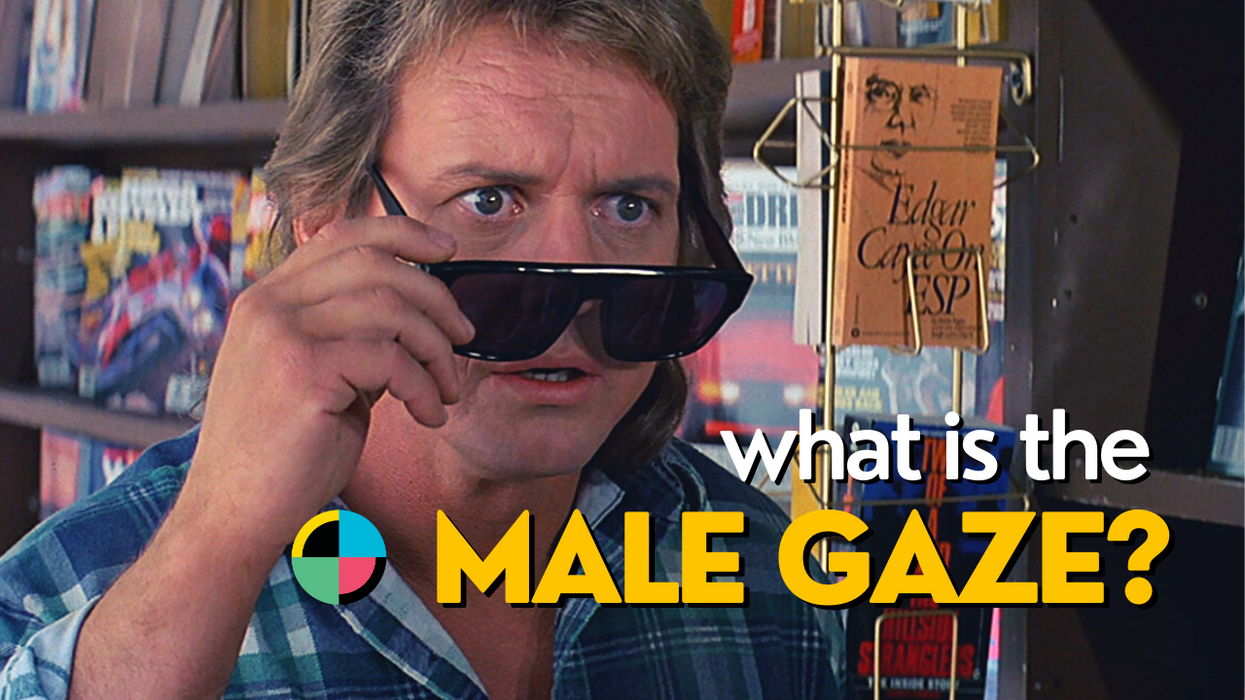Community, Leadership, Experimentation, Diversity, & Education
Pittsburgh Arts, Regional Theatre, New Work, Producing, Copyright, Labor Unions,
New Products, Coping Skills, J-O-Bs...
Theatre industry news, University & School of Drama Announcements, plus occasional course support for
Carnegie Mellon School of Drama Faculty, Staff, Students, and Alumni.
CMU School of Drama
Monday, April 08, 2024
What Is the Male Gaze?
nofilmschool.com: One of the topics Hollywood is coming to reckon with now is the question, "What is the male gaze?" Throughout the history of movies and TV, we've seen a lot of things made from the heterosexual male point of view. That perspective has not always been respectful of women characters or the female body.
Subscribe to:
Post Comments (Atom)

5 comments:
This is always a really interesting topic of conversation. I have read Laura Mulvey’s essay before and part of the reason this gets so complicated is that the male gaze doesn’t just mean that a man is telling the story in an objectifying way––women can also exert the male gaze upon themselves, and often do unconsciously, because of precedents established by male filmmakers. This is why it’s so important to learn more about what the “female gaze” means, and it’s interesting that this is the phrase people have been using when really all it means is giving characters agency and roundness rather than the tradition of showcasing attractive women and then allowing the male spectator to demystify or own them vicariously through the male character. I also was interested to see how this article specifically describes techniques and shots commonly used to perpetuate this standard.
I thought this article was particularly interesting as in AREPT today we were quite literally talking about topics similar to this. The topic of the male gaze was not specifically brought up but we spent a lot of time discussing the roles of men in women on stage and in film and how we have portrayed them for years and years has shaped social norms. I think it is such an interesting topic of discussion because until you really stop to think about it you do not realize the impact it has. And then all the sudden you have a discussion about it and every movie or show you are watching showcases the impact of the male gaze and sexualization of women. Pointing it out and recognizing how it impacts people is the first step to promote change and I really like how this article outlined that. I hope the discussion continues to happen so we can fix the issue.
Absolutely, the concept of the "male gaze" isn't confined to just the film industry. It's prevalent in theater too. Just as in movies and TV, many stage productions historically have portrayed women in a way that emphasizes their appearance or sexuality over their depth as characters. This is precisely why the role of an intimacy coordinator is so crucial in modern theater. An intimacy coordinator serves as an authority figure on set or in rehearsals to ensure that scenes involving intimacy are handled professionally, respectfully, and safely. They work to protect actors from exploitation and make sure that any intimate acts in the production are there to serve the story, not the personal intentions or desires of those in charge. This role is especially important in challenging the norms established by the male gaze by providing a structured, safe environment for actors to explore sensitive scenes. This addition to production teams helps to shift the focus from viewing characters as mere objects to respecting them as integral parts of the narrative with autonomy and significance.
I’m currently taking a class that explores sex and sexuality in pop culture, so I’ve explored the male gaze fairly thoroughly. While this article gave a brief explanation of it, I wish it would have cited Mulvey and her words more often. There’s a nuance that I felt was missing. How the male gaze is exacerbated in film, but more importantly, the social contexts that exist today because of this? It’s important to set up the stakes that surround the male gaze. I’m currently doing research about the application of the male gaze in theatre, more specifically, in the case of Sally Bowles in Cabaret. I’m looking at how her body is seen in the male gaze in sexuality both within the actual audience of Cabaret and implied audience of Cabaret. There is so much to cover here. More theory of the intersectional male gaze and now Goldberg and Beemyn’s theory of the cis gaze. I would love if we explored this in theatre more often!
The Male Gaze is something we often talk about in media, even outside of film. Some of my teachers have mentioned it when explaining something, or trying to get us to think about something, but I really appreciate how the article really dove deeper and explained its further. I do very much agree that The male gaze in Hollywood has definitely changed the way society view women, and the societal pressures women face because of that. It’s almost always an appeal to men, and even then, its quite obvious, with things such as red heels, a red lip, flowy hair, tight clothing, and many more. I feel like there’s also a lot of trends that happened because of The male gaze, and it was not only one era, but also growing up many of the clothing we would be expected to wear was aligned with the male gaze, and their requirements and wants.
Post a Comment